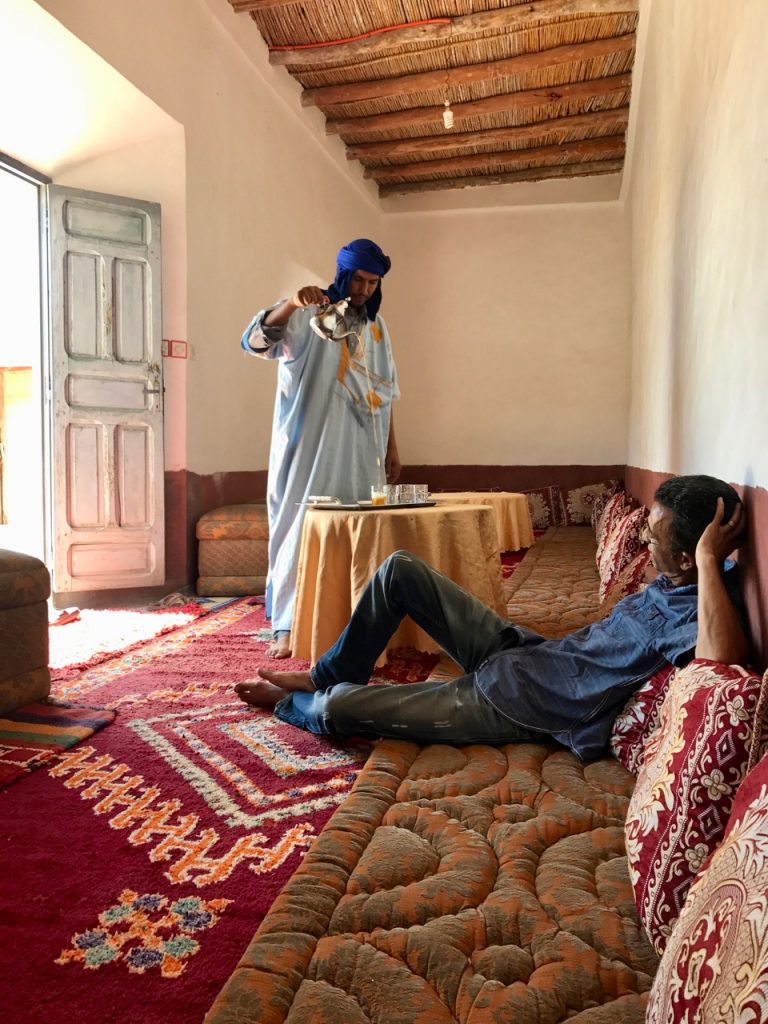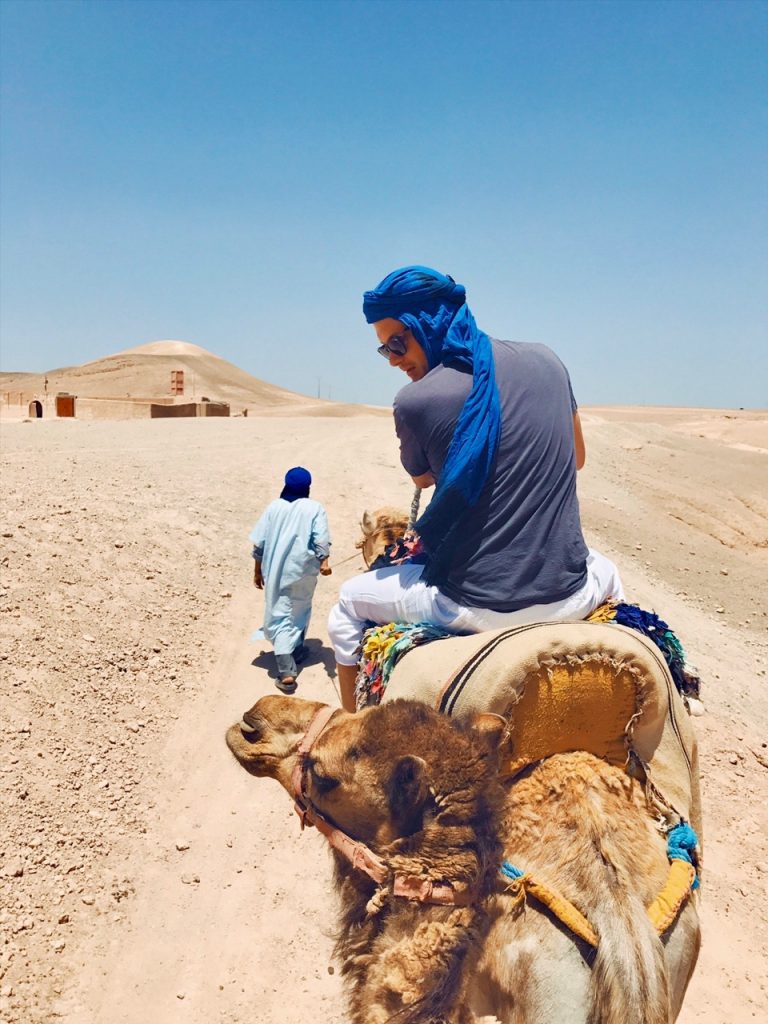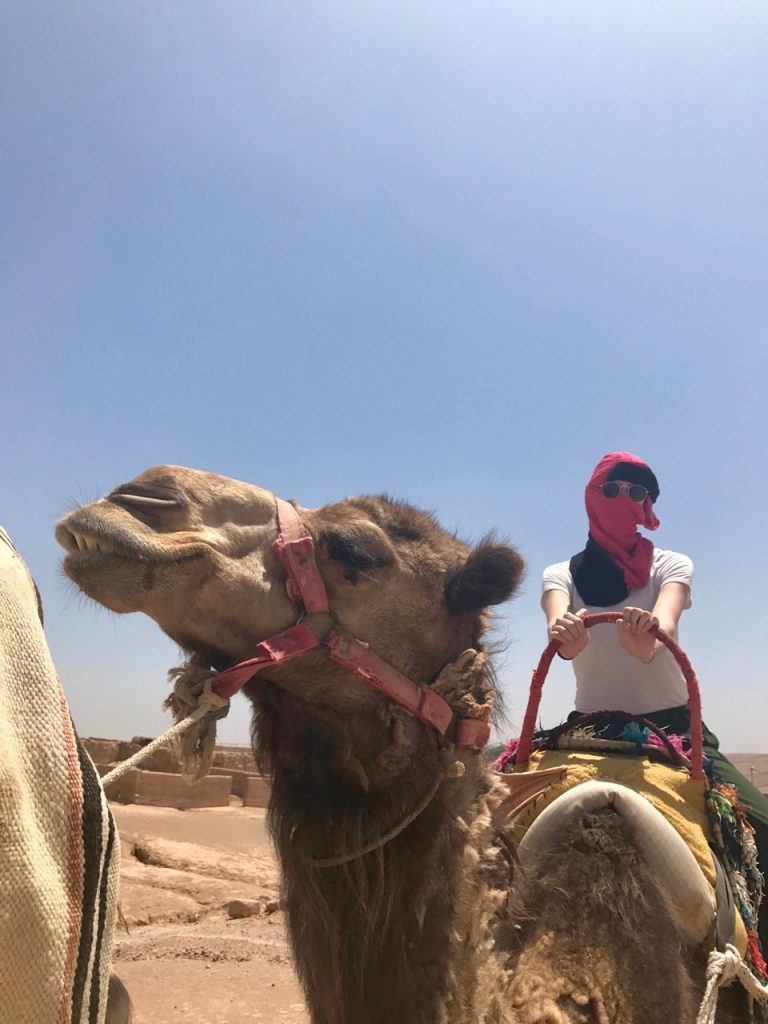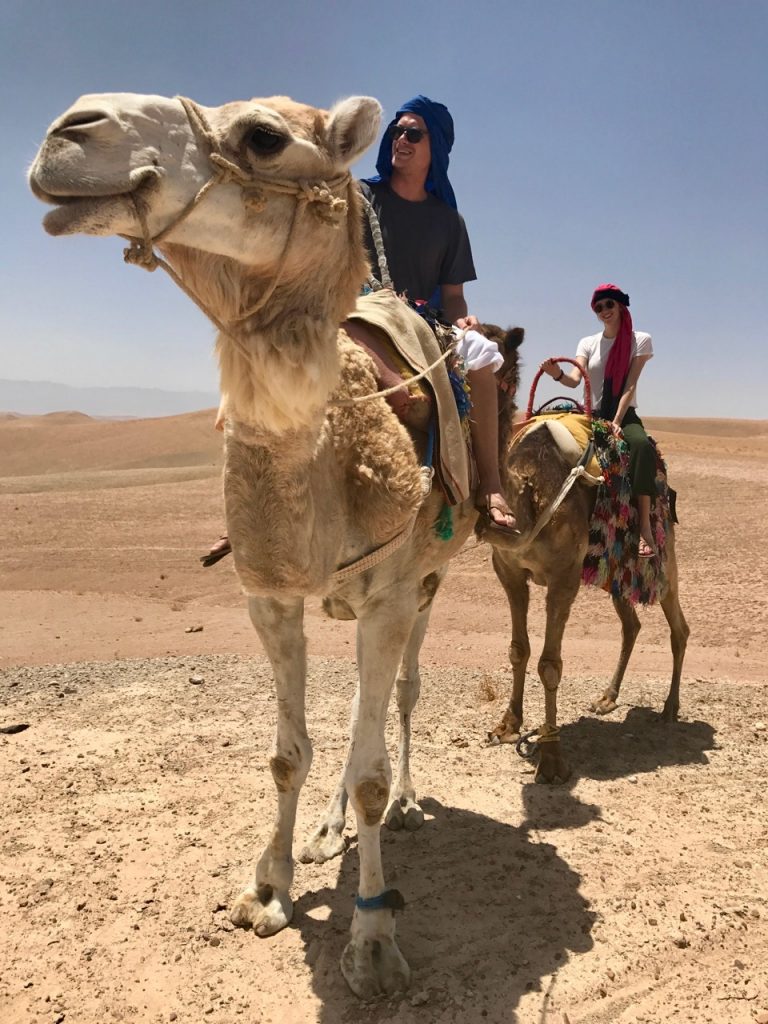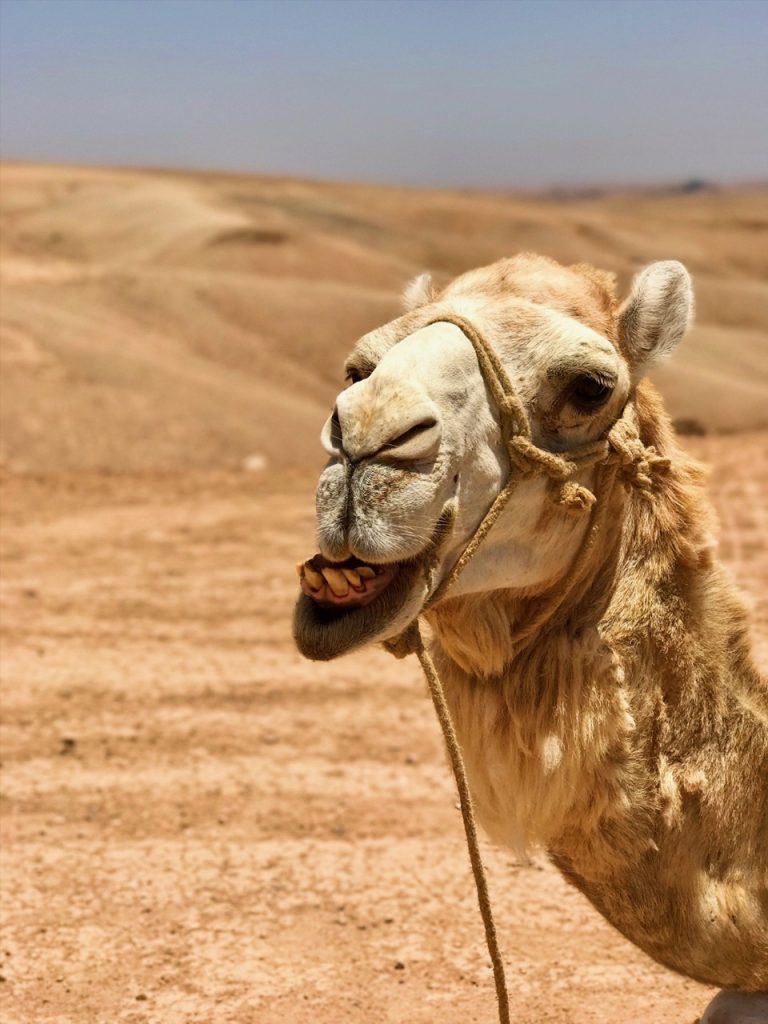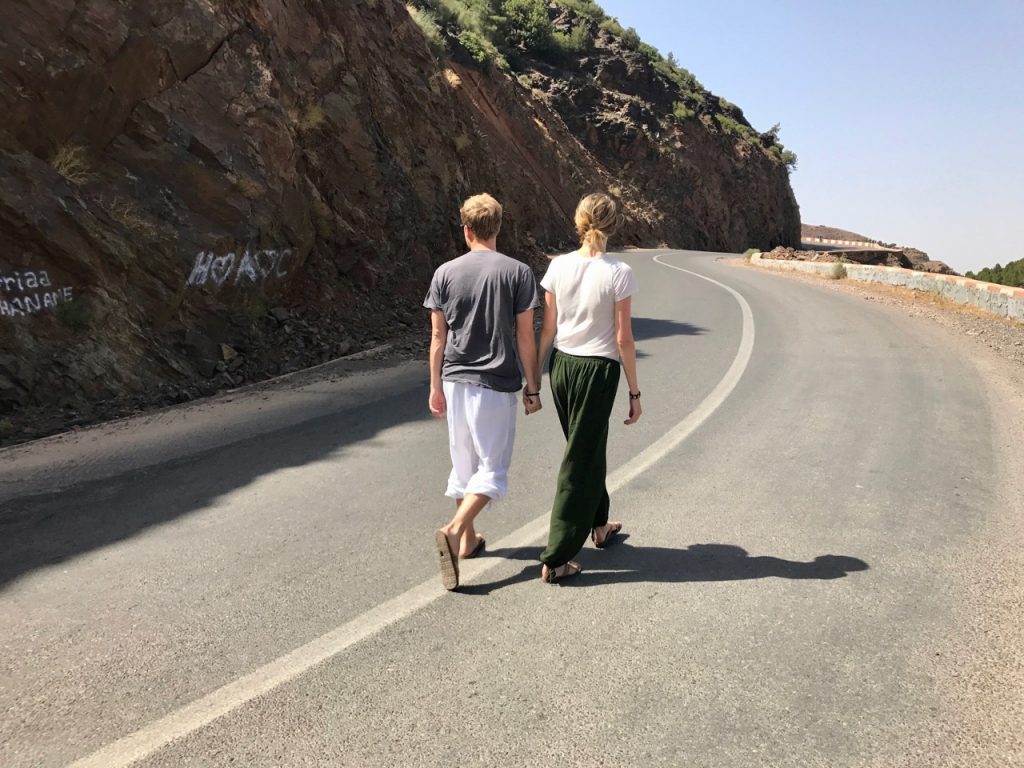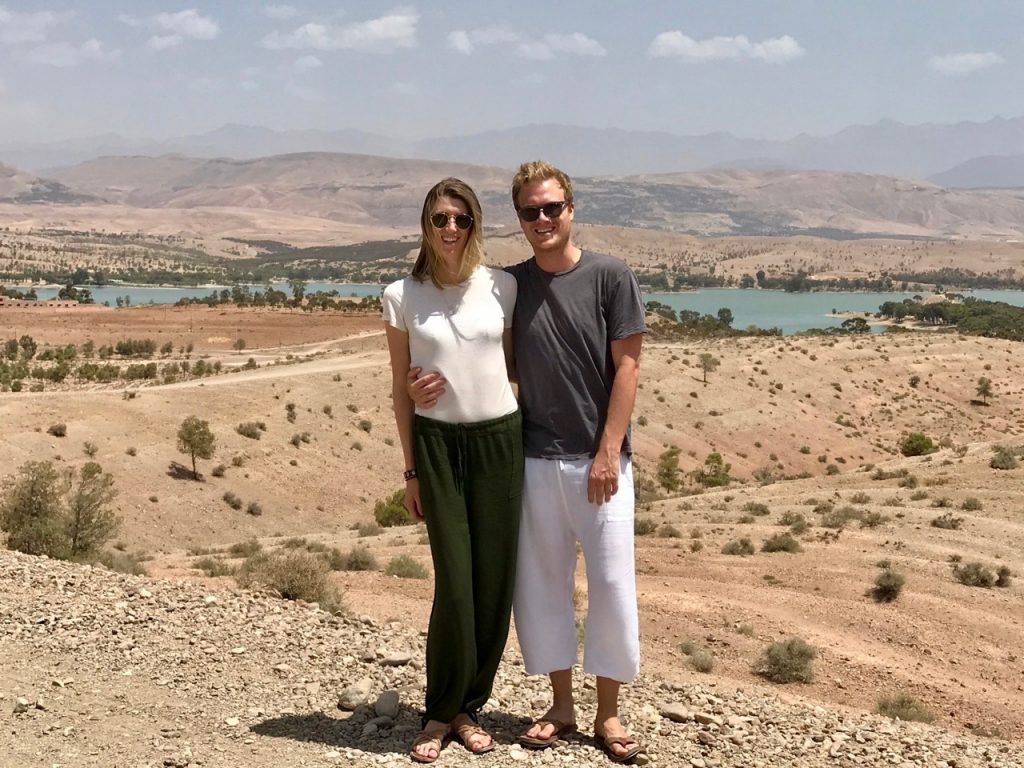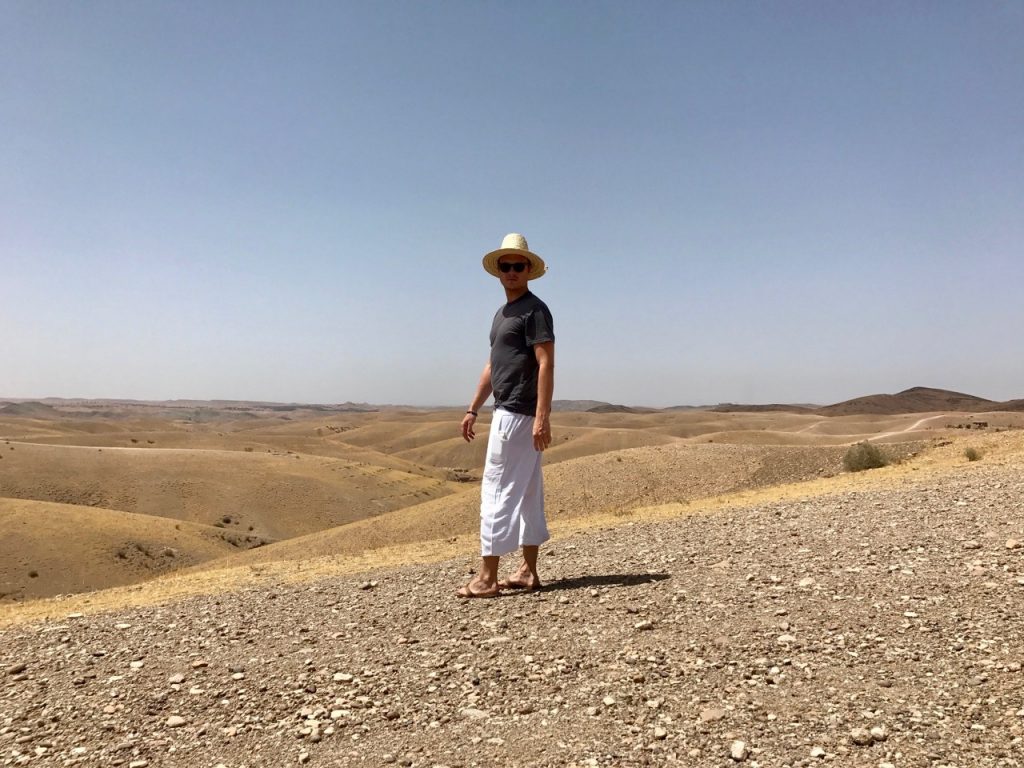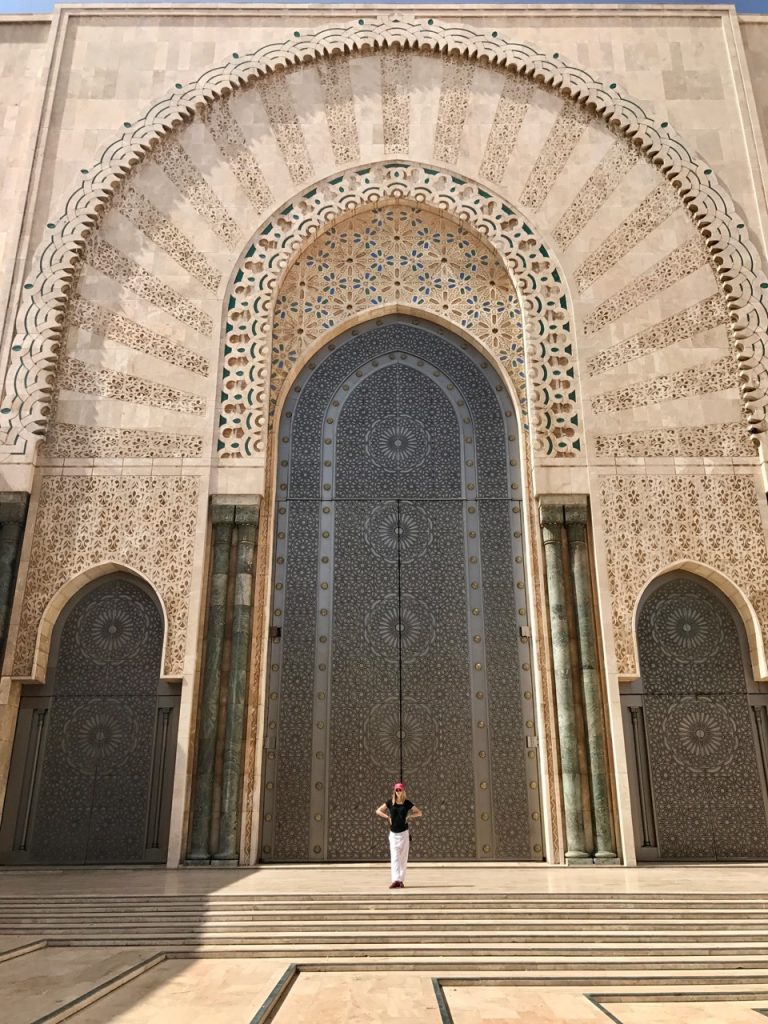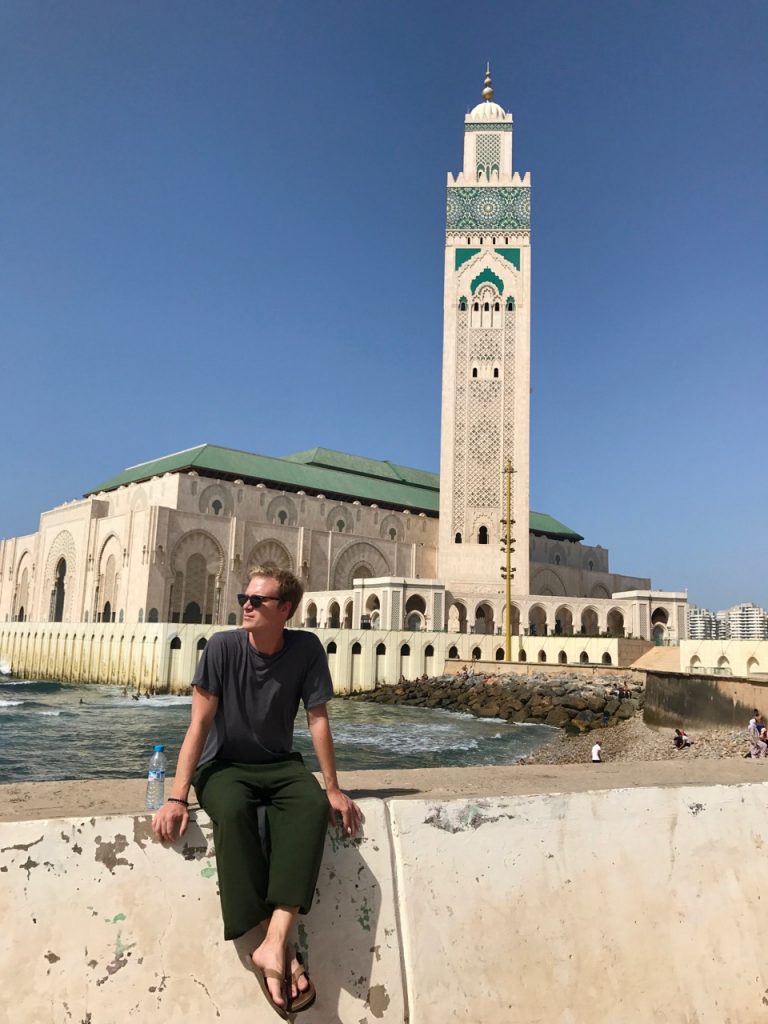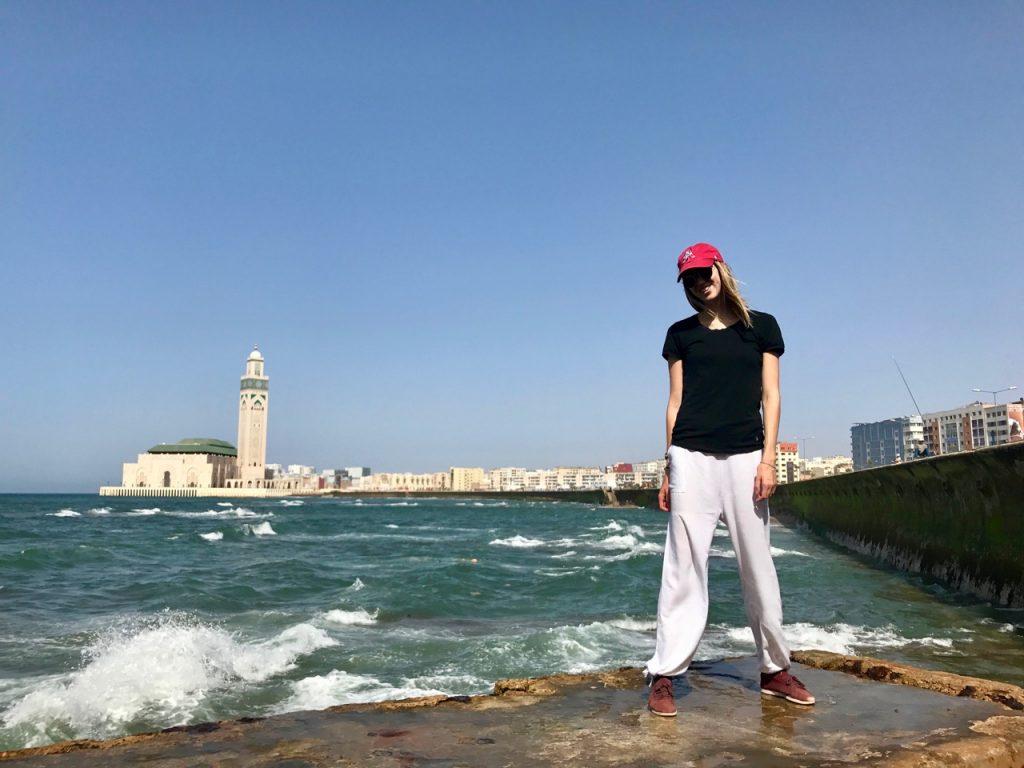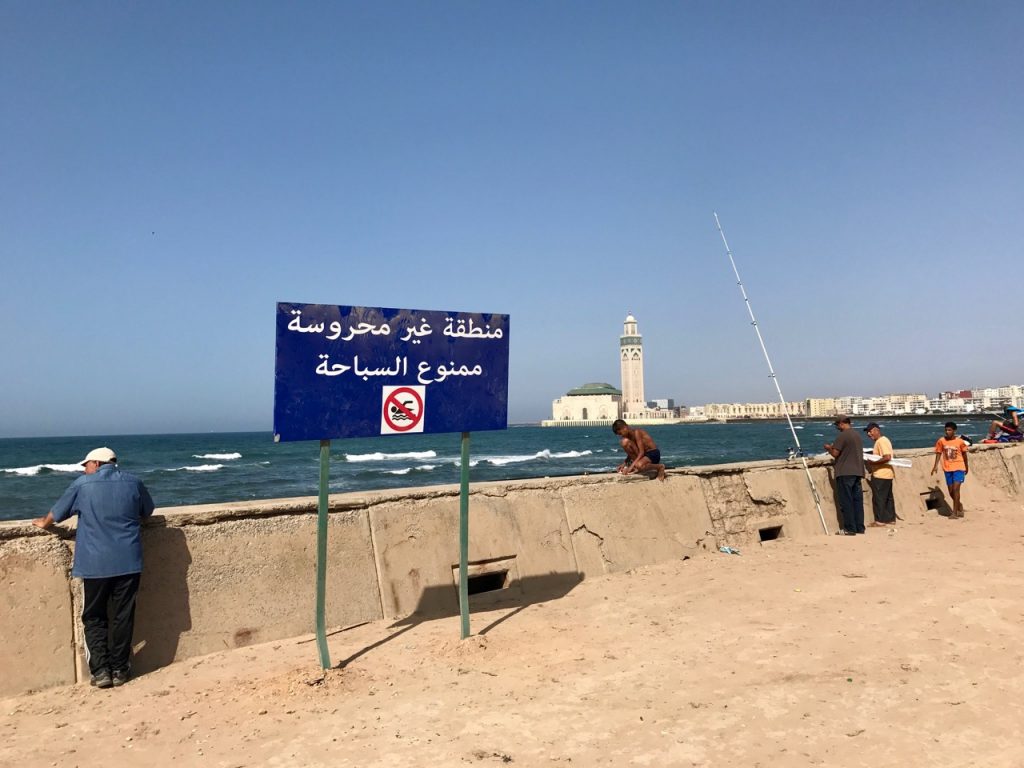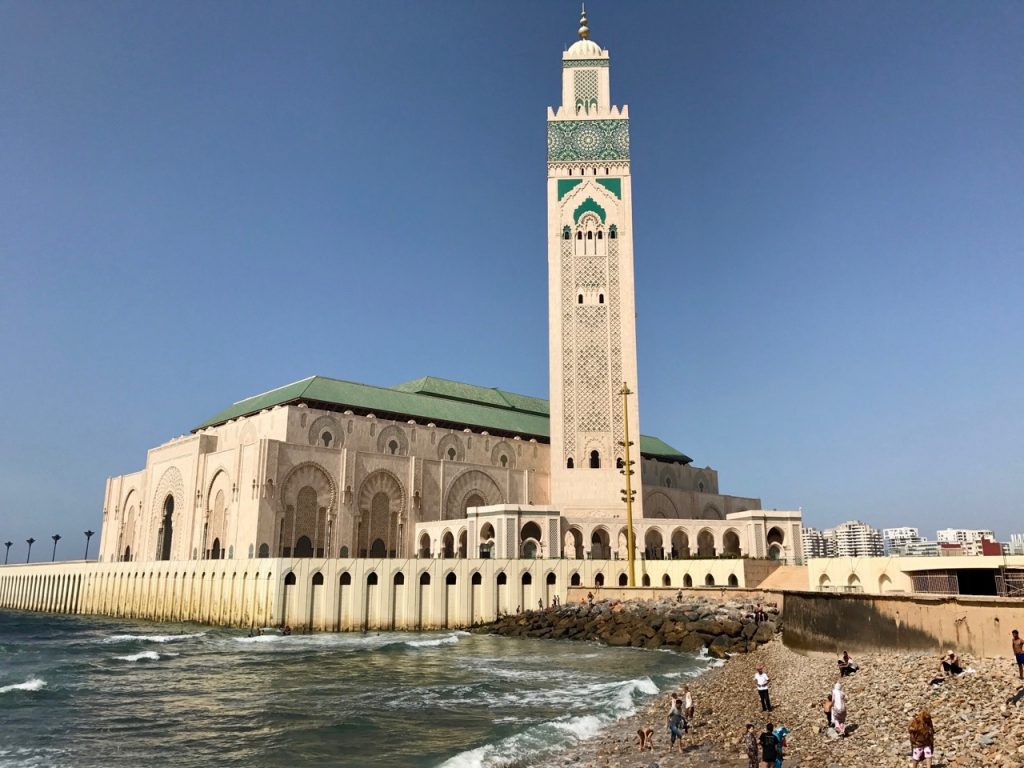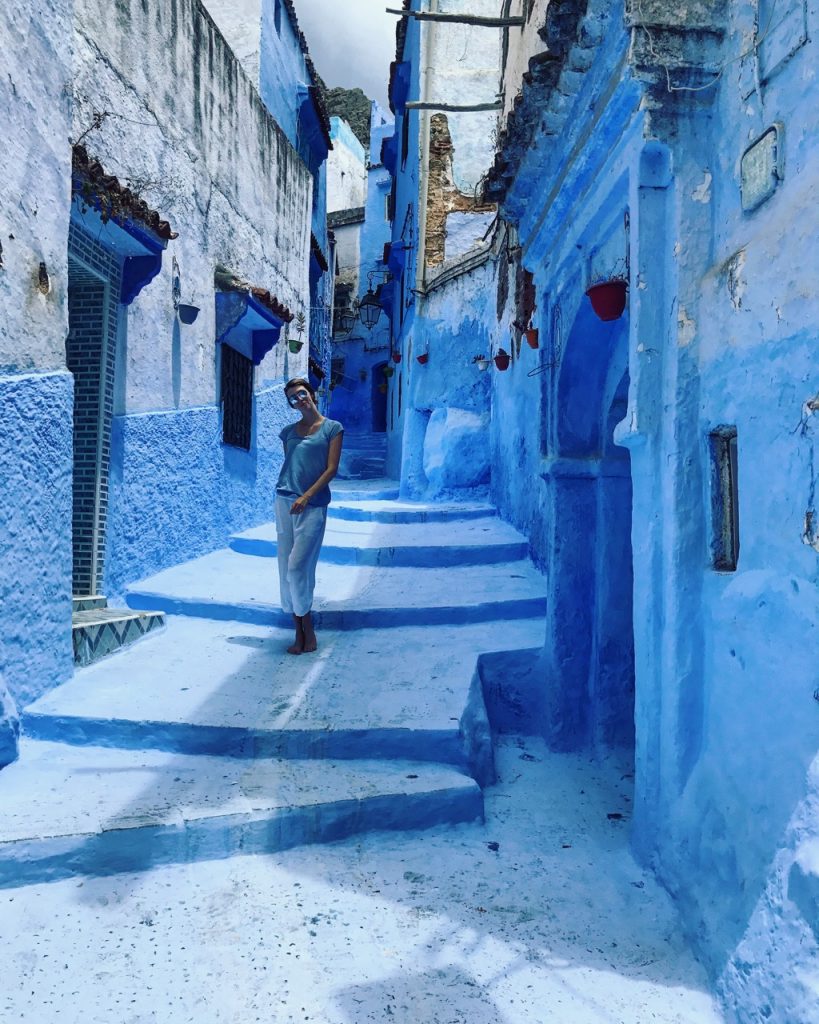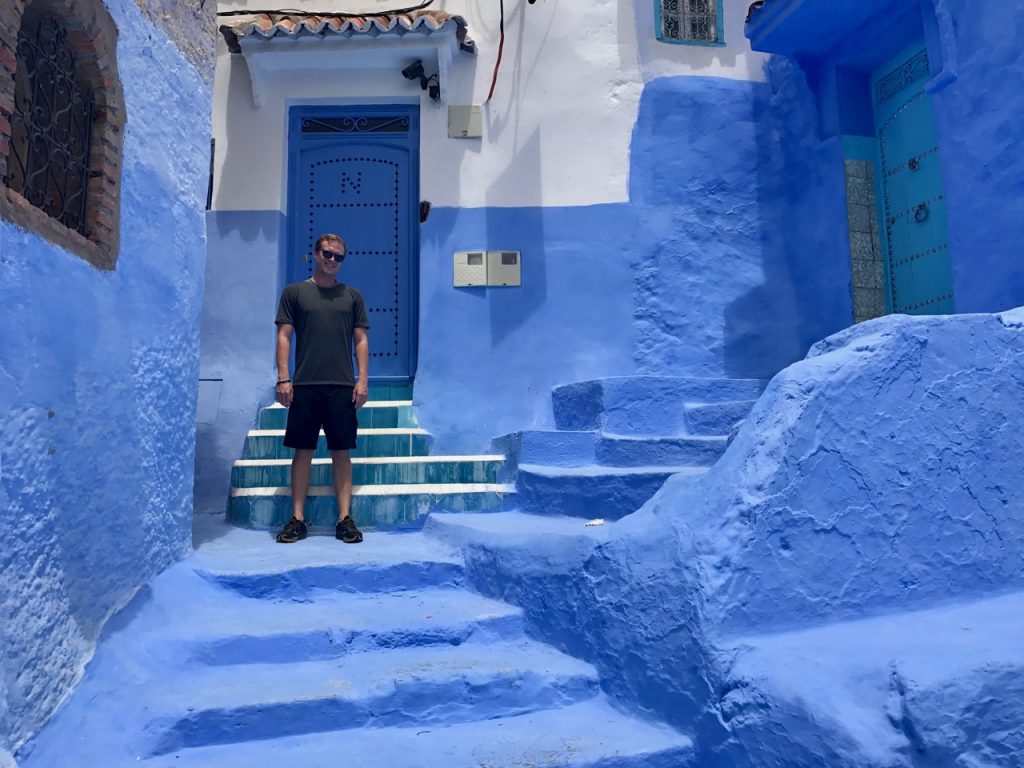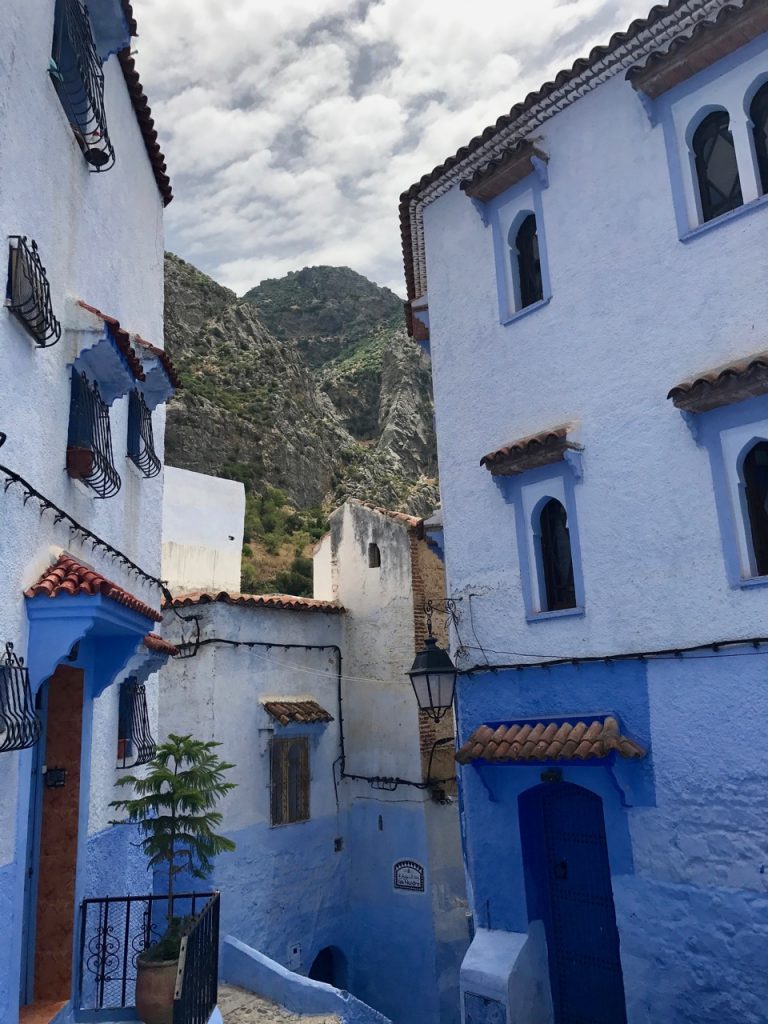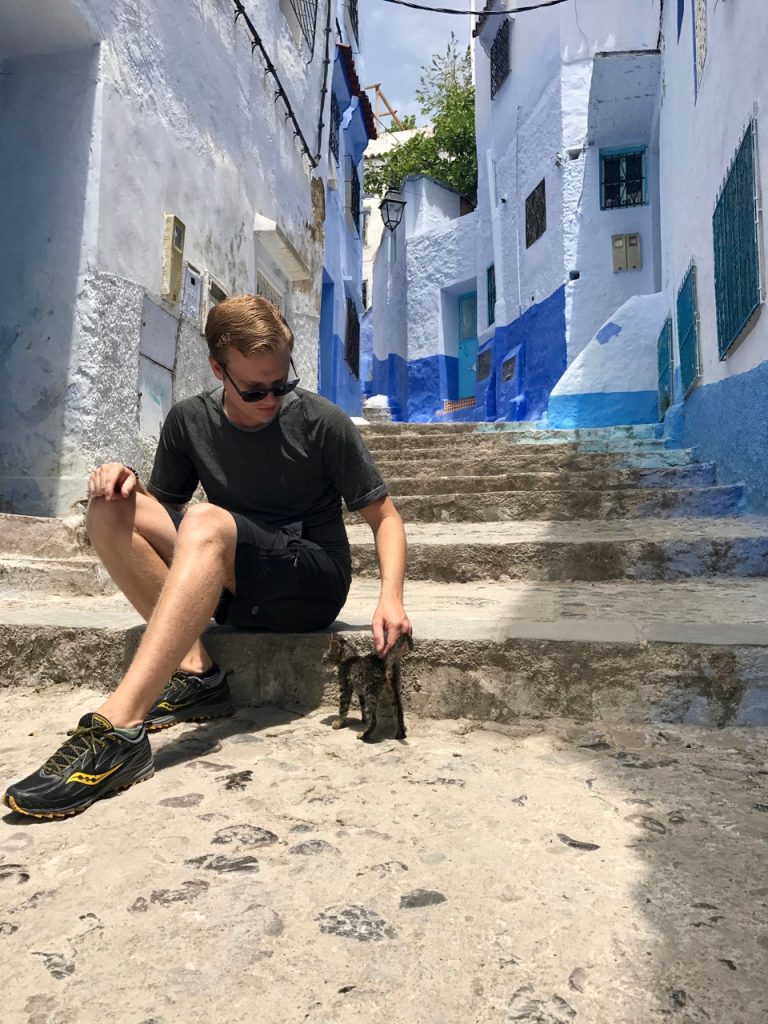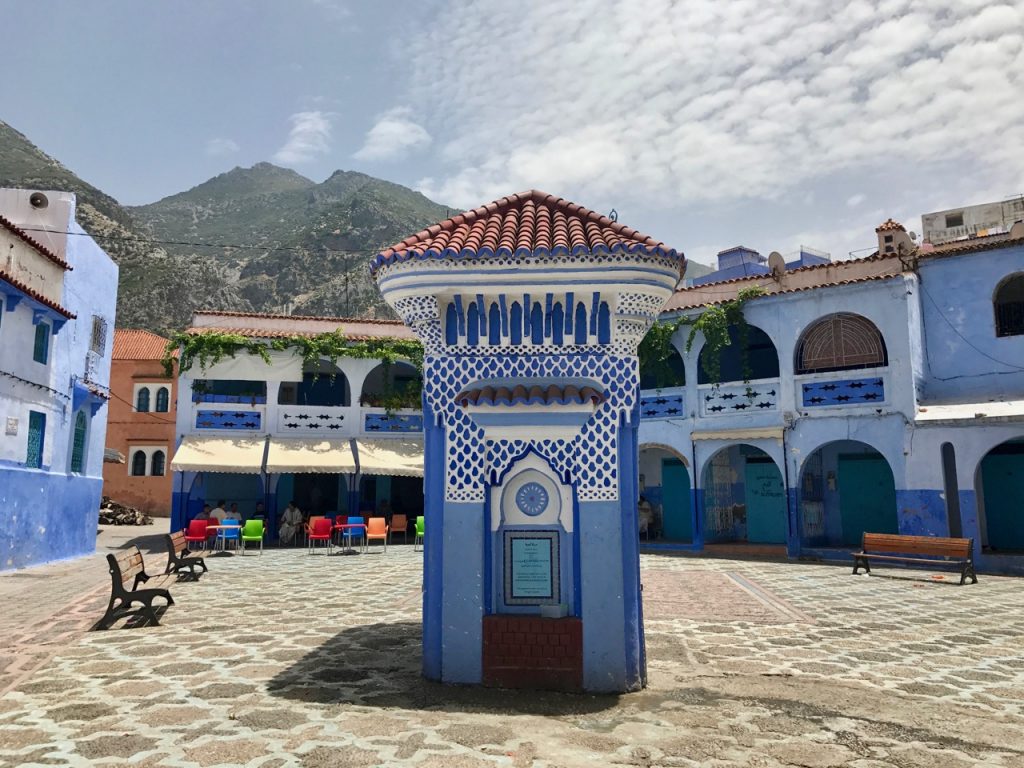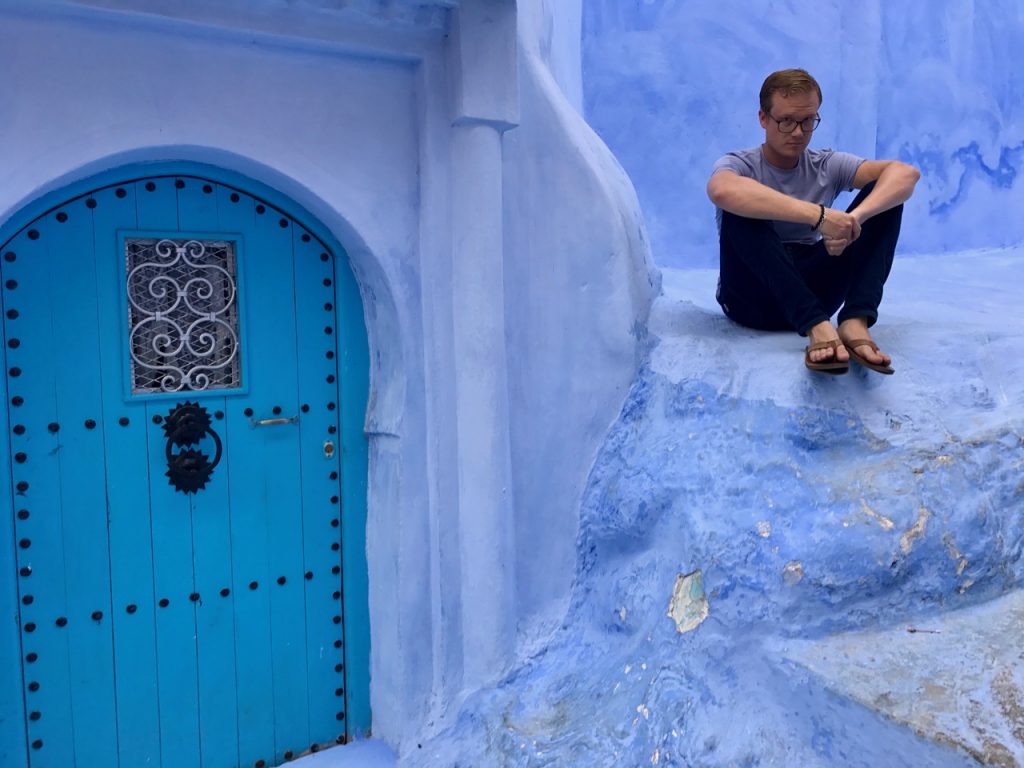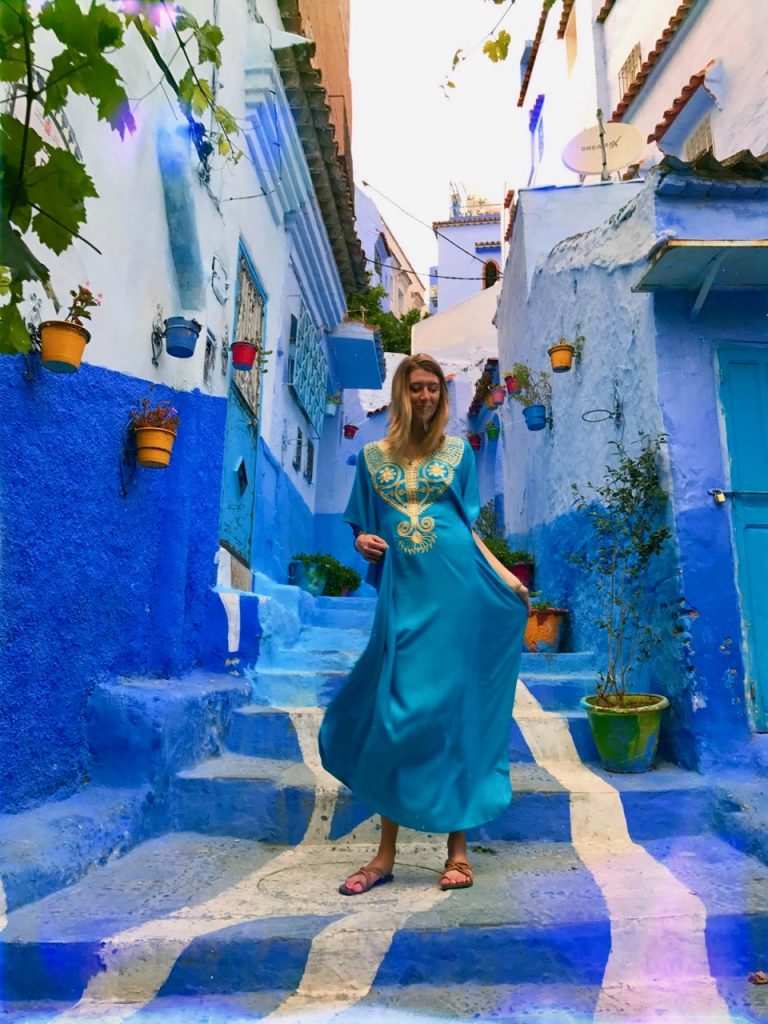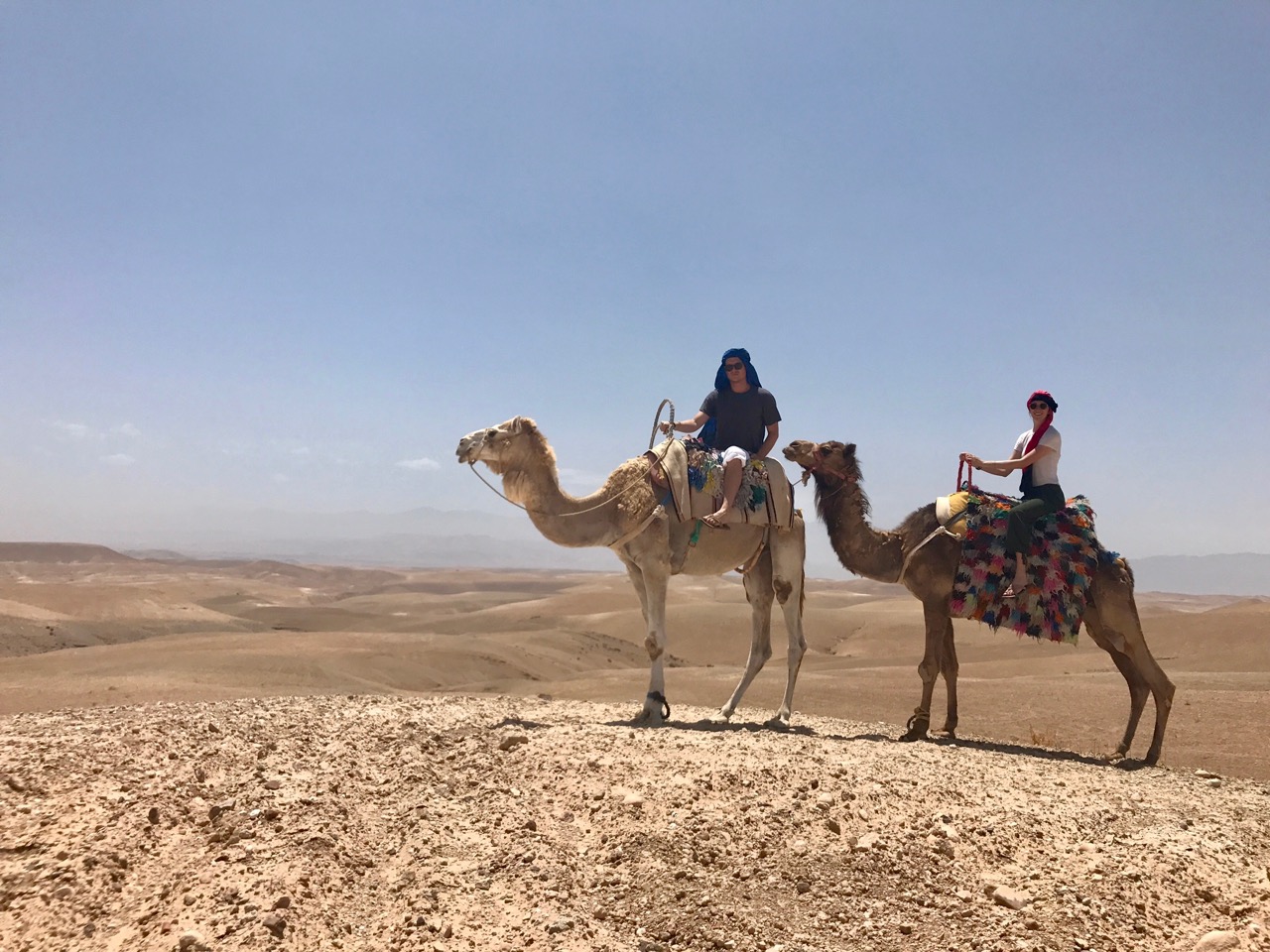That first morning our guide Mohammed was waiting for us in the lobby, hands clasped behind his back and head bowed. With a graceful slowness he shook both our hands.
“Are you ready to see our great city?” he asked us.
“ Born ready!” we replied. Little did we know that we weren’t born ready to see anything that was coming next.
“Yalla, let’s go” said Mohammed.
We ducked behind him out into the morning bustle of the dusty streets. He schools us in the art of side stepping scooters and ushering away swarms of children whose hands are quick to beg and quicker to swipe a unguarded wallet. We walk deeper and deeper down crumbling ancient brick and dust corridors; making enough lefts or right turns that we must be back where we just had started.
“Look at this keyhole shaped door.” he says to us. “These doors are always only for the mosques.” Just then midday call to prayer echoes off the sandy brick walls. Men in brightly colored baboush and white jellabas shuffle listlessly past us toward their afternoon duty. We walk through the oldest mosque and school in the city, where 900 boys once lived and studied the holy book together.
“Come with me.” Mohammed says. “I’m going to shock you now.”
We exchanged baffled looks of what we assumed could only be language lost in translation. A corner later we stepped into the beginning of our first Moroccan street souk. One vendor was selling fresh young rabbit from a cardboard box to shrouded women. With practiced indifference and efficiency he would shake each rabbit unit it’s neck snapped and it hung limp. He would then gut and offer to skin it. Two stalls over a vendor displayed an entire cow stomach and intestine, where it fizzled in the arid heat; flies crawling out of its severed ventricles. Fish mongers dozed off with their boots resting on piles of ice, while great slabs of raw fish turned rancid and putrified the air. Sardine slingers sloshed bare hands around crates of bloodied semi-living miniature fish, spilling glop onto the street. A mint and herb vendor gave us a short reprieve before we hurried past chickens receiving the same fate as the rabbits, and halved watermelons covered in what looked like an abundance of black seeds, but on closer inspection were plagues of black flies and midges.
Around the next bend, the leather auction was in the height of its afternoon excitement. More men napped on piles of barely dried raw skin hides, while a lazy auctioneer pretended to keep the sales moving. The dust and hide particles floated through beams of bleeding sunlight like something our of science fiction movie. As we walked through the place, the stench burned our nostrils and scorched the back of our throats. Next we walked through the raucous clamor of the metal workers, dodging showers of sparks as metal saws bit into metal rods. Eventually we stumbled onto the finished product of traditional baboush shoes, and embroidered jellabas. An aisle over would have only bronze crafted sconces and lamps in ever more intricate pattern work. Woodworkers, ceramic tiles, and spice shops would follow.
The process of accomplishing anything was made tenfold more difficult as we closed in on the last part of their month of Ramadan. While they were forbidden to eat or drink anything during the day, with a penalty of jail, we would half apologetically and half fearfully hide our icy water bottle in a sack when walking through the medina in the mid afternoon heat. Once inside, stall owners would corner and separate us until a deal was struck. Touching, or even looking at the merchandise was the same as eating an apple in the garden of Eden; all hell would break loose. Later in afternoon, the same air that once radiated with possibility and newness when we arrived in Morocco, would blister and boil with pent up aggression of the starved, dehydrated, and overheated populous. The same children that practiced their “hello’s” to us in the morning were liable to pelt us with stones in the afternoon. While the fast may have been in deference and sacrifice to God, it sadly sometimes came at the cost of everyday human interaction.
For the next ten days we were never quite comfortable, but we were certainly never bored. A journey to the Stone Dessert sat us atop our first camels, technically dromedaries (one humped camels), led over the baking rocks by a weary host. Afterward his family hosted us in their traditional Berber clay house for a meal of assorted tagines, tomato salads, and home baked breads. Despite what seemed to us a torturous end to a month of starvation and thirst, they were ever gracious hosts accompanying us throughout our visit. The rest of the day toured us through the remaining desert and surrounding mountain towns. In one village we passed a large group of women and girls standing on both sides of the street. Behind them the men, and the men only gathered in the graveyard for the burial of one of the local inhabitants. That evening we returned the medina and scrambled upstream past the piles of old and young men alike, surging towards the mosque for the evening call to prayer.
Two days later we entered Casablanca as quickly as we could leave it. Whatever Hollywood romance and wartime aura had enchanted generations prior, was dust in the African wind as far as we were concerned. Surely with more time in Casablanca, we would have found our own niche here, in fact certain sections of the Corniche glittered with fast cars and faster nightclubs; but at this point we were suffering from some second hang Ramadan aggression, coupled with residual temperamental tagine tummy.
With some welcome reprise the blue washed city of Chefchaouen reinvigorated us, if only for a few moments. The narrow twisting hillside sloped streets, dotted with now familiar low hanging doorways to riads hidden within were lined with chalky blue walls in one hundred shades of the same light blue. Their plaster would crumble like eggshell to the touch, and prove nearly impossible to capture on camera without looking staged, or confusing a lens to the point of making us look like smurfs. And then, as quick as a delicate moment had come, we’d be throttled back to a serene reality of boys careening down a street no wider than a sidewalk on mopeds in an exhibition of manhood and celebration. It was, after all, no longer Ramadan, but the exhaling festivus that is Eid, the termination of Ramadan. Restaurants shuddered their doors, families came together, and squares filled with white jellaba clad men smoking hashish and sipping coca-colas. There was no rager, no banger, no parade, or party; there was only the exhale that comes after the long sip of cold water, and the long drag of a water pipe. There was a return not to a new normal, but to a very, very old one.
On our last day in Morocco we didn’t say much. In our car from Chef to Tangier we sat in silence processing the last two weeks. For us, this was the first taste of not just Africa, but of a majority Muslim culture. Granted this was probably a most delicate and westernized introduction into this version of the world. Marrakech is after all is one of the few prestigious world locals to host a high society Nikki Beach club, and the Parisian bred Raspoutine. But behind its new world glittering gems are the true diamonds in the rough. Their names are Hicham, Mohammed, Sayyid, and Anass. They’re kind, spiritual, and engaging of people like us, clearly so far away from the world they’re from. As we walk towards the boarding area for the ferry to Spain a familiar persistent sense of guilt wells inside of us again. We’re happy to return to somewhere that reminds us of home, but equally grateful for the experience that we’ve received here. In the ferry terminal Stevie Wonder’s “This is a Man’s World” drifts through the loudspeakers. The irony here is not lost on us, but it’s not an irony we can manage a laugh at either. The thing is, we’ll be back one day; because we have to. It was an exposure to history that no history book or novel can ever broach. It has to be experienced, every last bit of it.
